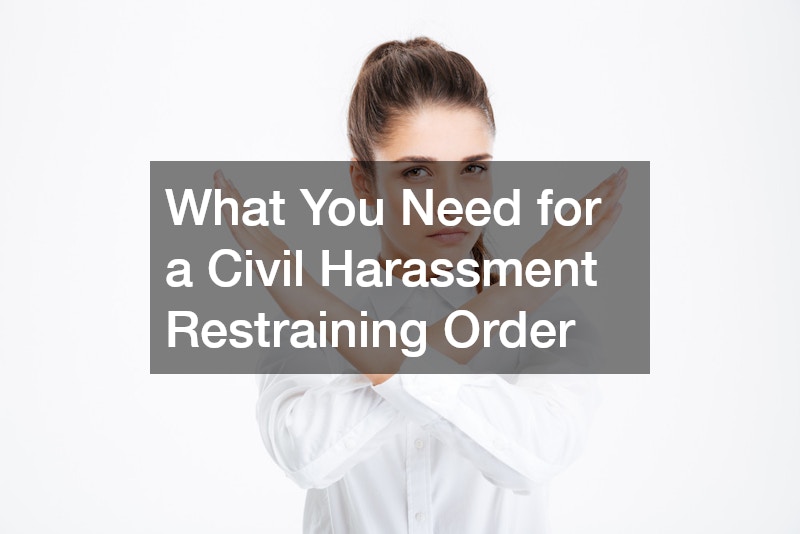Most people wonder where can I get divorce papers from? Or where do I go to file divorce papers?
The answer is actually quite simple. You can go to your local county courthouse and ask the clerk for divorce papers. As long as you already know what to do to get a divorce, you can even find the forms at your local library or order them online.
The first step to filing for a divorce is to fill out a petition for divorce with the help of your divorce attorneys. A reputable attorney can also guide you on where to go to file divorce papers. The second step is to file the petition for divorce with the clerk of your county courthouse. Lastly, you need to serve your spouse with the divorce papers and attend a hearing, where a judge will determine your case.
Filing for divorce can be complicated, and it is important to have an experienced attorney on your side. If you need help with the divorce process, contact an experienced divorce lawyer today.
UPDATED 11/3/20
Most people have watched a TV legal show since the law can provide a backdrop for any genre. Law firms, courtrooms, and law enforcement agencies have been portrayed in comedies, like Night Court, dramas, like Law and Order, and reality TV, like The People’s Court. However, have you thought about how Law and Order compares to real law and order?
Here are ten ways TV legal shows compare to the real thing:
Real Criminal Investigations Take Longer
Other than Law and Order and all of its spin-offs, TV legal shows rarely show how long real law and order can take. It is not unusual for a criminal investigation to take weeks or months because law enforcement agencies want to get all the facts right before they commit to an arrest. The reason is that making an arrest too early can expose the case to allegations by the defendant’s attorneys of bias and “rushing to judgment.”
More importantly, the U.S. Constitution has safeguards in place to protect the rights of criminal defendants from unreasonable search and seizure. For law enforcement officers to conduct a lawful search, they usually need a search warrant, with a few exceptions. Preparing a search warrant that describes what the police are looking for and where they are looking for it takes time. Moreover, because the U.S. has over 17,985 police agencies at the city, county, state, and federal levels, it takes time for law enforcement and prosecutors to have their search warrants reviewed by a court and approved.
Once the investigation is complete, the law enforcement agency usually obtain an arrest warrant. The arrest warrant must provide the “probable cause” for the arrest. Arrests made without a warrant must be supported by a probable cause statement filed with the court or the law enforcement officers must testify to the probable cause for arresting the defendant at a court hearing. Without probable cause to make the arrest, criminal defense attorneys can have an arrest thrown out.
Real Jails are Much More Crowded
On TV, you will see criminal defendants arrested, then almost immediately released on bail. However, in real law and order, there are very few mechanisms and processes in place to reduce jail crowding. Many of the processes intentionally or unintentionally tend to keep criminal defendants in jail, even though they have not been sentenced.
Under the U.S. Constitution, judges are restricted from requiring excessive bail to release a defendant. Unfortunately, this has not be interpreted as a right to bail. Rather, it has been interpreted only to mean that bail should be no more than is needed to secure the defendant’s appearance at trial.

For defendants who are poor or homeless, any bail would be excessive. For some of them, their families may be able to work with bail bonds companies to post bail in exchange for collateral, like a house or car. However, for many poor or homeless defendants, they have no choice but to remain in jail awaiting a trial that may be several months, or even years, away. This is true even though they have only been arrested and have not been proven guilty of any crime. In fact, this time in jail before trial is very damaging to society, since these defendants might lose their jobs, be unable to support their families and get saddled with an arrest record and time in jail, even though they are eventually acquitted of the charges. In this respect, real law and order is sometimes much more unfair than TV law and order.
TV Sometimes Confuses Areas of Law
The world of legal services are usually divided into three categories:
- Criminal lawyers: These lawyers represent you when you have been accused of violating a criminal statute that imposes criminal sanctions of jail time, fines, and forfeitures.
- Civil lawyers: These lawyers represent you when you have a legal dispute with another entity. This other entity can be a business, person, or government. However, the primary difference between civil law and criminal law is that losing means an injunction or damages award rather than jail time or fines.
- Administrative lawyers: These lawyers represent you when you are dealing with a government agency. Most of the time, there is no dispute, and the lawyers are trying to get you a permit, license, or other legal permission for you or your business to do something. When there is a dispute, it is called an enforcement action and can have criminal-like penalties such as losing a license.
You may have seen TV shows where a lawyer threatens to have the president of a company that made defective toys arrested. Or a prosecutor who tells a doctor who illegally prescribed drugs that she will take his medical license.
For good or bad, real law and order does not actually work that way. Different courts, administrative agencies, and tribunals have differing jurisdictions. While the same facts might give rise to a criminal case, a civil case, and an administrative case, those are argued and handled in different settings by different authorities.
For example, take the case of a doctor who illegally prescribed drugs. The doctor might:
- Be arrested for distribution of a controlled substance and face time in jail and fines in a criminal case.
- Be sued by the family of a patient who overdosed on drugs prescribed by the doctor in a civil lawsuit.
- Face discipline, including loss of the doctor’s license, in an administrative proceeding by the state’s medical board.
Unfortunately, limits on time and storytelling often collapse those into a single case on TV.
Most Criminal Charges End with a Plea Bargain
The pinnacle of every courtroom drama is the trial. However, for a variety of reasons, very few real law and order criminal cases go to trial. In the federal criminal system, for example, 8% of cases are dismissed, 90% of cases end with a plea bargain, and only 2% of cases reach trial.

A few reasons include:
- Law enforcement and prosecutors usually work hard to make sure they have good cases before arresting someone.
- Lawyers who practice criminal law know that the conviction rate is 83%, meaning that if the defendant wants to go to trial, a guilty verdict is likely. This allows them to counsel their clients so they understand exactly what the risks are if the case goes to trial.
- Sentencing guidelines often provide leverage for prosecutors who can threaten long prison sentences for a conviction at trial, but promise shorter sentences for a plea bargain.
- Criminal trials take a long time to resolve and many criminal defendants take a plea bargain to just get it over.
Most Civil Cases Also End with a Settlement
Despite portraying every lawsuit as an inevitable courtroom battle, most lawsuits end without reaching trial. The reason for this is that real law and order lawsuits are long and drawn-out affairs and courts have undertaken many procedures to encourage parties to resolve their differences without using up the courts’ time.
For example, every lawsuit includes a discovery phase. This allows the parties to learn about the other’s evidence in the case. Sometimes, learning what your opponent plans to use against you will encourage you to try to resolve your differences.
For example, if your business partner is suing you for fraud, you might reconsider how hard you might fight the case when your business law attorney receives a subpoena for your bank account records that will show exactly how much you took out of the business. At that point, you might decide to settle the case and settle up with your business partner.
Another procedure that many courts have adopted is the mandatory settlement conference. During this conference, the parties are placed in separate rooms and the judge acts as a mediator, discussing the case with each party and seeing what their settlement positions look like. The judge can then see if there is any common ground and help the parties see areas of possible settlement. However, this real law and order process would make for exceedingly boring TV.
Surprises are Rare in Real Lawsuits
Everyone has seen a courtroom drama where a divorce lawyer springs a surprise witness at the hearing who proves the spouse was cheating and lying about it all along. This might make for good TV, but is far from the way a real law and order court hearing would take place.

As mentioned above, discovery is the process by which lawyers exchange information about their cases. This allows both parties to be fully prepared for the case. During hearings and at trial, any information that was not previously shared with the other side will almost always be excluded. Thus, not only are surprises difficult to pull off under the discovery rules, most judges will throw out the surprise evidence or witness anyway.
As a result, lawyers have a powerful disincentive to trying to pull off surprises in a real law and order lawsuit. After all, it is never a good idea to anger a real law and order judge.
Real Lawyers Do Not Spend All Day in Court
Litigators, whether they practice civil law or criminal defense law, rarely spend more than a few hours per week in court. In fact, court hearings and trials are often some of the least significant parts of their daily work.
Instead, lawyers spend a good deal of time talking to clients about their cases, talking to colleagues about case strategy, discussing legal research with associates and law clerks, and drafting the legal pleadings and memorandums that are often much more useful to judges in deciding cases than live hearings.
For example, personal injury lawyers are often thought of as creatures of the courthouse. However, lawyers who help victims of car accidents spend much more time on the phone negotiating with insurance companies than they spend in court litigating against them.
Many Real Lawyers Never Go To Court
If you live in a small town, you might only have one local law firm that handles every case in town. However, in a big city, you will find that many specialist law firms contain dozens or even hundreds of lawyers who never go to court.
For example, some corporate lawyers spend most of their day negotiating deals and writing contracts for their clients. Patent lawyers write patent applications and shepherd those cases through the U.S. Patent Office. Land-use lawyers spend most of their day preparing land-use filings and preparing to appear before planning commissions and zoning boards. For many of these lawyers, arguing a case in court would be a rare occurrence, if it happens at all.
Real Law Firms Are Businesses
Unfortunately, there is one place where real law and order might not live up to the glamorized TV version. A law firm is a business and it many of the decisions the lawyers make about the cases they take are based on business considerations.
There is a saying among lawyers that “a lawyer is not a bus.” This means that a lawyer is not obligated to pick up every case that comes along. Rather, the lawyer is allowed to decide which cases to take, considering the legal, professional, and business reasons for taking or declining the case.
The reasons a law firm might voluntarily decline to take a case include:
- The lawyers will have difficulty working with the client.
- The law firm will not be able to forcefully advocate for the client’s position.
- The case is not financially worthwhile.
- The lawyers do not have the time to work on the case.
In fact, lawyers do not need to give any reason at all when declining a case. However, lawyers are not allowed to lie, so if a reason is given, it must be truthful.
Real Law Firms Are Highly Ethical
Although everyone has seen TV shows with sleazy lawyers who use underhanded tactics, most lawyers are highly ethical. For example, you will very rarely find a real family lawyer who sleeps with a client the lawyer is representing in a divorce, even though you might see this on TV.

This is not to say that all lawyers are good and moral people. You will find variations in lawyers just like you will find variations in all other professions. However, there are powerful reasons why lawyers tend to act more ethically in real life than on TV:
- Every state has rules of professional responsibility that govern lawyers. These rules are specifically written to protect clients and the justice system from unscrupulous lawyers.
- To be admitted to practice as a lawyer, applicants must pass a criminal background check and explain any prior brushes with the law. This tends to weed out many potentially risky lawyers.
- The risk of malpractice lawsuits and disciplinary proceedings hangs over everything a lawyer does. Rather than risking a lawsuit and disbarment, most lawyers will follow the rules.
Real law and order is not the same as TV law and order. TV shows often dramatize, compress, and simplify legal cases and the way lawyers handle them. Ironically, the depth of understanding and analysis that most real legal cases require and most TV cases gloss over is exactly what appeals to many who practice law. So, in this respect, society can be glad that they do not have TV lawyers, TV judges, and TV law enforcement doing society’s legal work.
Perhaps you still want to become a lawyer despite learning what lawyers do consists mostly of research, sifting through mounds of paperwork, and rarely experiencing the excitement of courtroom drama. You learn more about the basic concepts of law at a law library, a feature of every law school. You can find those local to you simply by conducting a search using Bing or Google for “free law library near me.”
Once you find your local law library, you should first research the question of “How do you get in law school?” The short answer to that entails first earning an undergraduate degree, a Bachelor’s degree from an accredited college or university. You must also take a standardized test similar to the ACT and SAT tests used to gauge potential collegiate success. The test for law school is called the LSAT. It determines your reading comprehension, logic and rational thinking capabilities, problem solving skills, and other skills contributing to success in the legal profession.andnbsp;
Each university offering a juris doctorate, or JD, as the graduate degree attorneys obtain also gets called, has its own application process. These lengthy applications focus on your undergraduate studies, grades, LSAT scores, reasons for wanting to study law, goals in the legal profession and in life. While you are not yet expected to know law details, applications for law school expect you to know yourself. Many schools expect you will already know the area of law in which you want to practice and encourage you to obtain an undergraduate in pre-law or business.
More:
columbia legal aid, deposition transcript management software, great legal marketing llc, convert e transcript to pdf, court reporters unlimited, court reporting office management software, e tran transcript, e transcript bundle viewer, law street marketing, legal aid dc employment, legal marketing florida, legal services scam, ptx viewer ipad, real court transcripts, real legal transcript, real link law, reallegal e transcript bundle viewer, reallegal e transcript manager, reallegal e transcript viewer free download, reuters transcript, sanction software tutorial.





